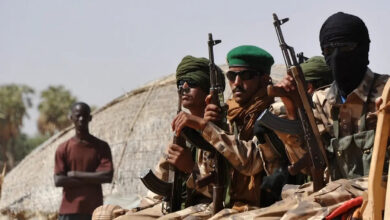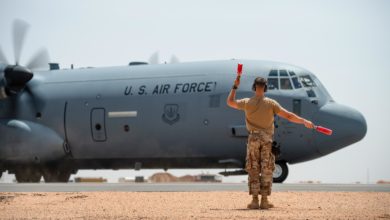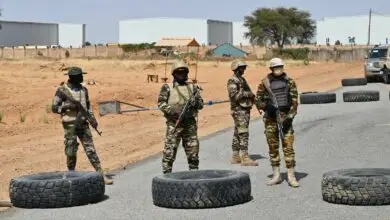Seven military personnel were killed on Thursday, September 26 in a “complex attack” in central Mali’s violence-torn Mopti region, the Malian Armed Forces (FAMa) said.
“A FAMa mission escorting two trucks of fertilizer from Douentza to Sévaré was ambushed at the Batoma junction at around 10:45 a.m.” FAMa said in a release.
“The first vehicle first struck an Improvised Explosive Device (IED). This was followed by gunfire. During the operation, 7 personnel were killed,” the release said.
Minister of Communication Yaya Sangare in a later statement said the military mission was escorting both “food trucks and trucks loaded with fertilizer.”
Sangare confirmed that seven personnel were killed and said that others were injured. “Reinforcements were sent to the area to track down the attackers,” Sangare added.
There was no immediate claim of responsibility for the attack.
Many armed groups are active in Mali and the wider Sahel region. Most insurgent attacks are attributed to the Group to Support Islam and Muslims (JNIM) which formed in March 2017 from a merger of several smaller groups including the Sahara branch of al-Qaeda in the Islamic Maghreb, Ansar Dine and Al-Mourabitoun. JNIM’s leadership has pledged allegiance to al-Qaeda leader Ayman al-Zawahiri.
Islamic State-affiliated groups are also active. Since May, ISIS has attributed insurgent activities in the Mali-Burkina Faso-Niger tri-border area to its West Africa Province affiliate, rather than to what was previously known as Islamic State in the Greater Sahara.
In 2012 a Tuareg separatist uprising against the state was exploited by Islamist extremists linked to al-Qaeda who took key cities in the desert north of Mali.
France began its Operation Serval military intervention in its former colony early the next year, driving the jihadists from the towns, and the MINUSMA peacekeeping force was then established.
But the militant groups morphed into more nimble formations operating in rural areas, and the insurgency has gradually spread to central and southern regions of Mali and across the borders into neighboring Burkina Faso and Niger. Large swathes of Mali remain outside government control, and inter-ethnic bloodshed is a regular occurrence.
JNIM, which strongly opposes the French presence in the Sahel, reinforced its opposition to the former colonial power in a September 5 statement, warning G5 Sahel governments that attacks against their forces would continue while they support the France-led Operation Barkhane counter-terrorism force.
Barkhane evolved in August 2014 from the Serval mission, and has a mandate for counter-terrorism operations across the Sahel. Roughly 4,500 French troops are deployed in the region, including around 2,700 soldiers in Mali. Personnel from Estonia and helicopters from the United Kingdom support the Barkhane force, and Denmark has announced plans send two helicopters and up to 70 troops.
Barkhane focuses activity in insurgent-hit Mali, Burkina Faso, and Niger, and troops work alongside other international operations, including the roughly 14,000-strong MINUSMA United Nations stabilization mission in Mali, and the G5 Sahel Joint Force, the long-planned 4,500-strong joint counter-terrorism force comprising troops from Burkina Faso, Chad, Mali, Niger and Mauritania.
France spearheaded the G5 Sahel initiative, but it has been undermined by lack of training, poor equipment and a shortage of funds. United Nations Secretary-General Antonio Gutteres has long-called for regular U.N. funding for the G5 Sahel Joint Force, but the U.S. has pushed back against direct funding, preferring instead bilateral funding for individual states.
With reporting from AFP











